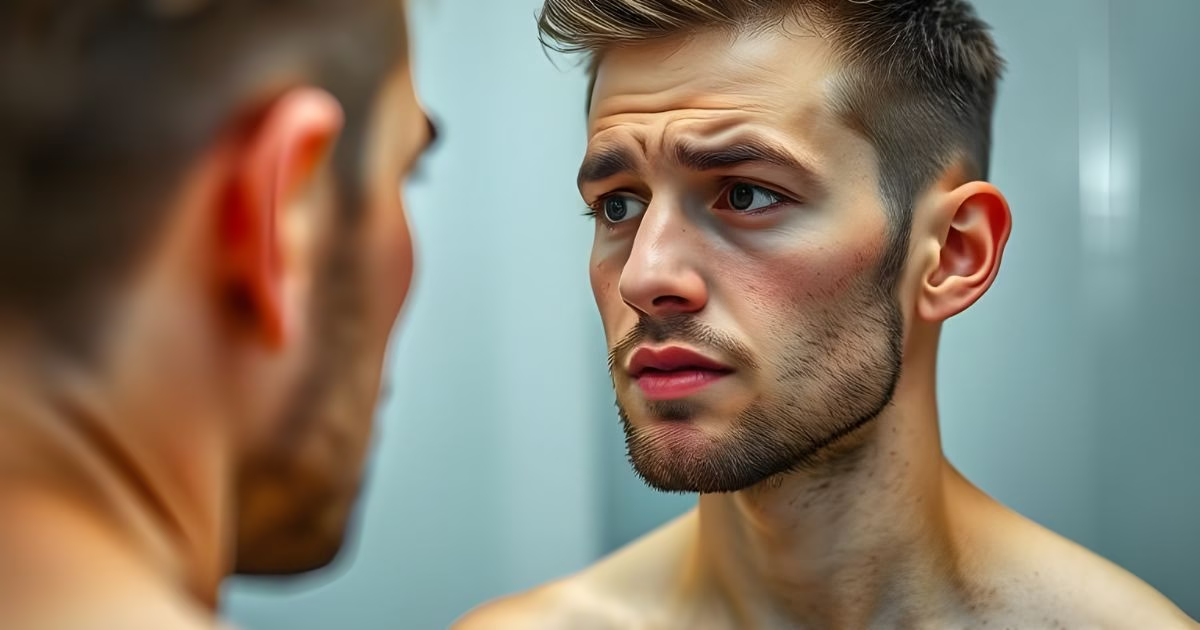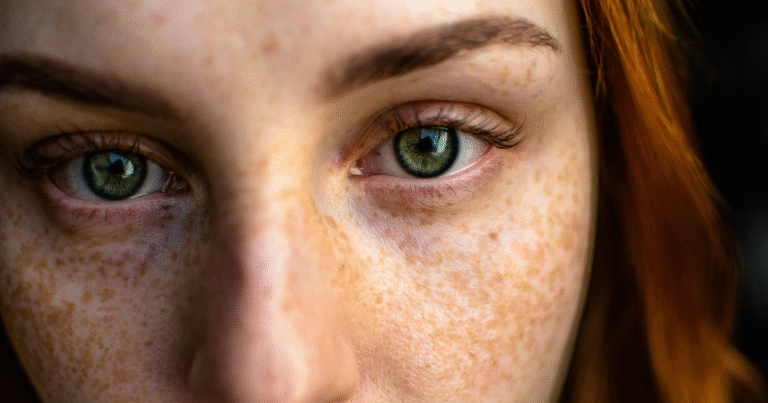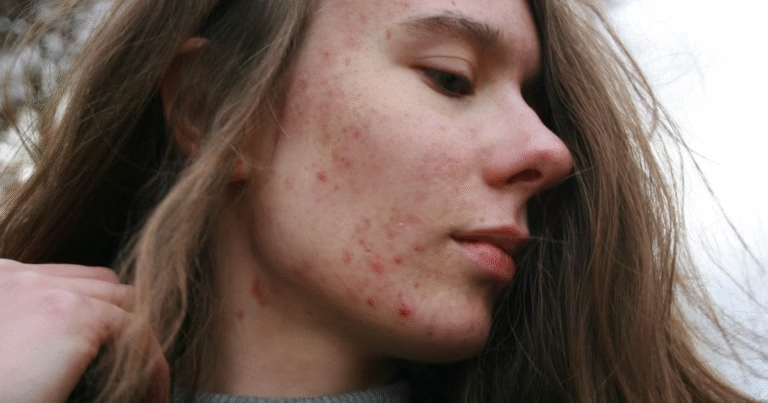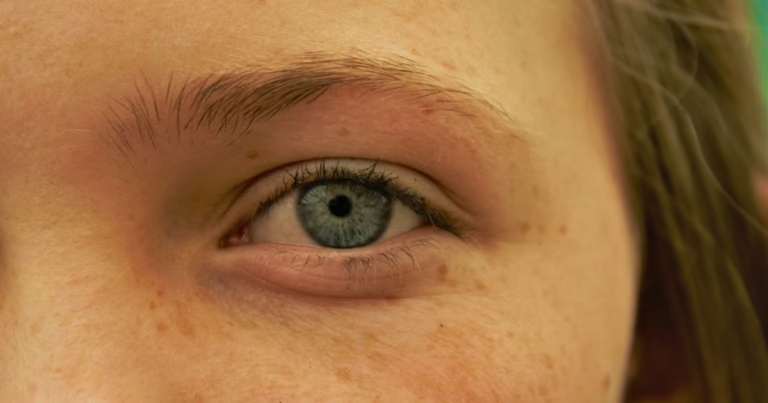Ashwagandha is hailed as a miracle herb in many wellness circles – praised for reducing stress, boosting energy, and even enhancing sleep. But what if something that’s meant to help you suddenly becomes the reason behind your new breakouts? If you’ve recently started taking ashwagandha and noticed acne flaring up, you’re not alone.
In this article, we’ll explore whether ashwagandha cause acne. We’ll break down the science, sift through real-world stories, examine hormonal effects, and offer practical tips for anyone wondering if this herb is messing with their skin.
Table of Contents
Key Takeaways
- Can ashwagandha cause acne? Rarely, but possible due to hormone shifts or individual sensitivity.
- Testosterone connection: Some people may experience increased oil production and cystic acne.
- Anti-inflammatory benefits: It may help reduce acne in others.
- Response varies: Genetics, hormone levels, dosage, and skin type play big roles.
- Tips: Start slow, choose clean extracts, monitor skin changes, and consult a professional if needed.
What Is Ashwagandha & Why Do People Take It?

Ashwagandha (Withania somnifera) is an adaptogenic herb used in Ayurveda for over 3,000 years. It’s most known for reducing stress by lowering cortisol levels, improving sleep quality, balancing energy, and potentially enhancing hormonal health. People take it in capsules, powders, tinctures, and even skincare.
How Acne Develops: The Hormone & Skin Link
To understand how ashwagandha might be connected to acne, let’s first look at how acne forms:
- Excess sebum (oil) production
- Clogged pores (dead skin cells + oil)
- Bacteria (P. acnes) overgrowth
- Inflammation
Hormones – especially androgens like testosterone and DHT – play a major role. When these rise, sebum production increases, often leading to oily skin and breakouts.
Can Ashwagandha Cause Acne? Breaking It Down
Hormonal Pathway: Testosterone & Oil Production
Some studies and anecdotal reports suggest that ashwagandha might increase testosterone levels, especially in men. While this can be great for libido or energy, it could spell trouble for acne-prone individuals.
Reddit forums have users reporting:
“Ashwagandha gave me deep cystic acne within two weeks.”
Though not everyone experiences this, those with a sensitivity to hormonal shifts should be cautious.
Anti-Inflammatory Shield: Can It Help Acne Too?
Ashwagandha contains withanolides—compounds known to reduce inflammation. Since acne is largely inflammatory, some users report clearer skin and fewer breakouts when taking ashwagandha regularly. It’s all about how your body responds.
Mixed Anecdotes & Lack of Clinical Proof
There’s currently no large-scale study directly linking ashwagandha to causing acne. One case study found that ashwagandha helped reduce acne symptoms in a woman with hormonal imbalances.
Who Might Be Affected – And Why
Not everyone will break out from ashwagandha. Those more likely to:
- Have hormone-sensitive conditions (like PCOS)
- Are in puberty or early 20s
- Already struggle with oily skin or cystic acne
- Take high doses (>600 mg/day)
- Person with pitta skin
- React to other ingredients in supplements
When & How It Shows Up
Breakouts might start within days or weeks of use. Most commonly reported:
- Oily T-zone
- Chin/jawline cystic pimples (hormonal pattern)
- Increased blackheads or congestion
Some chalk it up to a “detox purge,” but there’s no solid proof of this mechanism.
Where the Evidence Stands: Science vs Real-World Stories
Clinical data is limited. Anecdotal evidence is mixed:
- Some say it caused breakouts
- Others saw improvements in acne, especially stress-related types
- One topical study showed that ashwagandha extract could reduce acne-causing bacteria
How to Use Ashwagandha Safely (If You’re Acne-Prone)
- Start with a low dose (250–300 mg/day)
- Use standardized extracts – preferably KSM-66 or Sensoril
- Choose clean brands without additives, fillers, or biotin (can worsen acne)
- Track your skin: Journal any changes over 2–4 weeks
- Pair with a balanced skincare routine: Non-comedogenic, gentle cleansers, and hydrating moisturizers
- Consult your dermatologist or Ayurvedic practitioner if acne worsens
Real Stories: What Users Say About Ashwagandha and Skin Changes
Across Reddit, YouTube comments, and wellness forums, users have shared a wide range of experiences with ashwagandha and skin health. Some say it was life-changing – in a good way – while others warn it triggered unexpected acne.
One Reddit user shared:
“I was taking 600 mg a day and got the worst cystic acne of my life. I stopped, and it cleared in a week.”
Conversely, another user said:
“Ashwagandha calmed my stress breakouts. I’ve had clearer skin since starting it.”
These mixed outcomes highlight just how individualized the effects can be. Variables such as gender, genetics, baseline hormone levels, and supplement quality all seem to influence how the body reacts.
It’s also worth noting that many products on the market include other ingredients like biotin, zinc, or B12 nutrients that can also affect skin health. This makes it harder to isolate whether it’s the ashwagandha or the formula causing the issue.
If you’re trying ashwagandha and are concerned about acne, stick to one new supplement at a time. That way, you can monitor its effects accurately and adjust accordingly.
Should You Quit Ashwagandha If It Causes Breakouts?
The answer depends on your goals and how severe the breakouts are. If your acne is mild and the benefits of reduced anxiety, better sleep, or more stable energy levels outweigh the skin irritation, you might decide to stay the course.
However, if you’re getting painful cystic pimples, increased oiliness, or more frequent flare-ups, it may be time to reevaluate. Here’s what you can do:
- Pause for 2–4 weeks: Give your body time to reset and track your skin’s response.
- Try a lower dose: If you’re taking 600 mg/day, drop to 250 mg or less and observe.
- Switch extract types: Some users tolerate Sensoril better than KSM-66, or vice versa.
- Opt for topical application: Ashwagandha is sometimes used in Ayurvedic skincare—this could offer benefits without systemic effects.
- Explore alternatives: Other adaptogens like holy basil (tulsi) or rhodiola may support stress resilience with less impact on testosterone.
Above all, listen to your body. Your skin is a messenger, not a nuisance. If something feels off, even with a “natural” herb, it’s okay to stop and reassess.
Could Ashwagandha Be Unmasking an Underlying Hormonal Imbalance?
Sometimes, what looks like a side effect is a sign of a deeper issue being stirred up. Ashwagandha’s impact on the endocrine system may reveal pre-existing hormonal imbalances, particularly in individuals with conditions like PCOS, adrenal fatigue, or thyroid dysfunction.
For example, someone with subclinical high DHEA or testosterone levels might not show symptoms until they begin taking an adaptogen that further stimulates these hormones. Acne, especially on the lower face or jawline, can be the first red flag.
In this sense, ashwagandha isn’t necessarily “causing” the acne—it might be amplifying a pattern your body was already struggling with. This is where functional lab testing can help. If you’re noticing breakouts alongside mood swings, irregular cycles, hair shedding, or energy crashes, consider a full hormone panel (including DHEA-S, testosterone, cortisol, and thyroid markers).
If an imbalance is confirmed, Ayurvedic herbs can be combined more strategically. For instance, combining ashwagandha with shatavari or licorice may balance androgenic effects in women. Consulting a practitioner trained in integrative or Ayurvedic endocrinology can help guide this process.
By understanding your baseline, you’ll not only gain more control over your skin but also deeper insight into your body’s root imbalances.
FAQ Section
Q: Can ashwagandha cause hormonal acne?
A: It’s possible, especially if it raises testosterone or DHEA levels in sensitive individuals.
Q: Is there proof that ashwagandha causes breakouts?
A: No direct clinical proof, but user experiences suggest a possible link.
Q: Can ashwagandha help with acne instead?
A: Yes, some find it helps reduce stress-related breakouts due to its anti-inflammatory and adaptogenic nature.
Q: What form of ashwagandha is least likely to cause acne?
A: Capsules with pure root extract and no added biotin or synthetic fillers are usually safer.
Q: Should I stop taking it if I break out?
A: Yes – pause the supplement, see if your skin clears, and consult a healthcare provider before resuming.
TL;DR – Can Ashwagandha Cause Acne?
Ashwagandha can trigger acne in some individuals, especially if it elevates testosterone or DHEA, leading to increased oil production. While it’s an anti-inflammatory adaptogen that helps many manage stress and hormonal balance, others, especially those with hormone-sensitive skin or underlying imbalances, may notice breakouts, particularly cystic acne along the jawline.
Not everyone reacts the same. Factors like dosage, extract quality, co-formulated ingredients (like biotin), and your genetic makeup matter. If you suspect it’s affecting your skin:
- Lower the dose
- Pause for a few weeks
- Consider switching to a cleaner or different extract
- Try topical use or explore other adaptogens
And if acne persists, it might be unmasking a deeper hormonal issue; consider lab testing and consult a professional.
Bottom line: Ashwagandha isn’t inherently bad for skin, but personalization is key.
Conclusion
Ashwagandha isn’t inherently bad for your skin. For many, it reduces stress, supports hormonal balance, and may even help acne. But for a select few, especially those sensitive to hormonal fluctuations, it could be a hidden acne trigger.
Listen to your skin. Start slow. Stay informed. And when in doubt, consult a pro.
Have you experienced any skin changes with ashwagandha? Drop your story in the comments – we’d love to hear!
References
- PubMed: Protective Effects of Withagenin A Diglucoside from Indian Ginseng (Withania somnifera) against Human Dermal Fibroblast Damaged by TNF-α Stimulation
- PubMed: Withaferin A—A Promising Phytochemical Compound with Multiple Results in Dermatological Diseases
- Healthline: Proven Health Benefits of Ashwagandha
- MedicineNet: What Are the Disadvantages of Ashwagandha?
Note: This post is not medical advice. Always consult a healthcare provider before starting or stopping any supplement.





